From chemical warfare to deadly riots, Germany's key role in anti-Iran plots
By Syed Zafar Mehdi
German police are busy hunting for operatives of a far-right movement allegedly involved in a "plot to overthrow the government" in Berlin, with dozens of "suspects" already in police custody, facing interrogation and torture.
Holger Münch, head of the German federal police, earlier this week described the "suspects" as a "dangerous mixture of people" with "irrational convictions" possessing "money and weapons", in order to justify the sweeping raids across the country.
Prosecutors in the country say the "plotters" allegedly aimed to topple the government, using "violence and even murder", likening it to crossing the red line.
Quite remarkably, the plot, script and choreography sound strikingly familiar — the influx of money and weapons, use of violence and murder, attempts to foment insecurity and civil war, and of course, the ambitious bid to overthrow the government.
Iran has seen it all for the past three months. The only difference is that the "regime change" plot designed for the Islamic Republic is far bigger in size and scale with protagonists of different hues at work.
And more importantly but unsurprisingly, Berlin has been one of the key plotters.
Since the deadly riots erupted in Iran in mid-September, triggered by the death of a 22-year-old Iranian woman while in police custody, Western states have been hyper-aggressively pushing the "regime change" agenda in the form of hybrid war, making a sheer mockery of international law.
German authorities, in particular, have openly and brazenly instigated rioters in Iran through official and unofficial channels, going to the extent of facilitating a large demonstration in Berlin in late October, which amounted to clear interference in Iran's internal affairs.
Interestingly, while they see their own internal security and political survival as "red lines", cracking down on those allegedly involved in a "coup plot", they are not willing to extend the same privilege to Iran, which is up against armed rioters, criminals, terrorists - all of them aided and abetted by Western states.
Good riots, bad protests
German Chancellor Olaf Scholz's spokesman Steffen Hebestreit on Wednesday said "right-wing extremism" poses the "biggest threat" to the country, while expressing concern over what he called a "far-right coup plot".
The statement came hours after dozens of "suspects" were arrested by German security agencies in random raids across the country, including in Berlin, Thuringia, Hesse and Lower Saxony.
On the same day, in Iran, President Ebrahim Raeisi offered to listen to everyone, even those holding "opposite views" while drawing a clear line between riots and protests. He made the remarks at Tehran University on the occasion of National Students' Day.
Raeisi said, as is becoming increasingly clear now, the unrest in Iran is part of the hideous conspiracy to turn the country into another Syria and Afghanistan while pointing the finger toward the US and its allies, which of course includes Germany.
Germany, which scores abysmally low on human rights, has led the crusade against the Islamic Republic in recent months, pushing the European Union to impose further human rights-related sanctions on the country, while also fanning the hybrid war against it.
It was one of the first countries to condemn the execution of an Iranian man who was charged with unleashing a reign of terror on the streets of Tehran, attacking security forces and disturbing public order — of course, swayed by foreign propaganda.
Iran's foreign minister Hossein Amir-Abdollahian rejected Berlin's criticism as "hypocritical", saying the fight against terrorism, violence and hate speech ought to be an "unequivocal international responsibility".
"It is hypocritical that Germany considers these as red lines for its territory and security, but incites the same sinister phenomenon in Iran and duplicitously denounces our legitimate struggle against them," the top Iranian diplomat wrote on Twitter.
Notably, German authorities have in recent months been severely critical of what they call the "repression of protests" in Iran. The same brand of "protests" they have dubbed a "right-wing coup plot" in their own country. Different yardsticks, of course.
As President Raeisi categorically stated on Wednesday, protests and riots need to be distinguished as two different phenomena. While one enables and facilitates democratic processes, the other derails and destroys them.
What we have witnessed in Iran are not peaceful protests, but rioters armed with assault weapons going berserk across the country, unleashing a reign of terror, killing ordinary citizens, destroying public property, disturbing public order, and paving way for terrorism.
A voluntary Basiji member bludgeoned to death on a deserted street, a seminary student smacked fatally with cold weapons, a police officer dragged out of his car and slaughtered in broad daylight, a 10-year-old boy showered with a volley of bullets, the country's flag set ablaze in the middle of a street.
These are the armed hoodlums German chancellor Scholz on November 12 said his country stands "should to shoulder" with, insisting that they are "fighting for freedom and justice".
The same "freedom and justice" Saddam Hussein wanted to bring to Iran with chemical weapons supplied by Germany and other Western states in the 1980s.
Old scars of chemical warfare
At his weekly presser on November 28, on the eve of the day for remembrance of the victims of chemical warfare, Iran's foreign ministry spokesman Nasser Kana'ani appeared with a haunting chemical mask on the desk.
It was a symbolic protest against Germany's supply of chemical weapons to former Iraqi military dictator Saddam Hussein during his 8-year war against Iran in the 1980s, immediately after the Islamic Revolution put an end to years of Western meddling in the country.
“For Iranian civilians and our military forces, this frightening mask brings back memories," Kana'ani said, recalling the time when he served on the battlefront during the Sacred Defense as a teenage boy.
“Saddam's regime had no barriers in using weaponry and chemical munitions during the war, supported by Western powers, particularly the German government,” he hastened to add, pointing to Germany's direct complicity in the chemical warfare against Iran.
The spokesman referred to several UN reports that indicted German companies for providing the former Iraqi dictator with chemical weapons to be used against the people of Iran, which left thousands dead and many others partially or fully disabled for life.
Taking the opportunity, Iran renewed calls for Germany to be held accountable for its criminal role in enabling the Iraqi Baathist regime's use of chemical weapons against the people of Iran during the war.
Iran's deputy foreign minister Reza Najafi, speaking at the Organisation for the Prohibition of Chemical Weapons (OPCW) conference in the Hague, said the Islamic Republic "neither forgives nor forgets", referring to the chemical onslaught.
"As the biggest victim of chemical weapons in contemporary history, Iran neither forgives nor forgets the perpetrators and supporters of Iraq's chemical attacks and these crimes," the diplomat asserted.
Iran has repeatedly over the years raised the issue of Germany's support to the Iraqi regime in perpetuating the horrendous crimes against the people of Iran.
In January 2021, Ismail Baqai Hamaneh, Iran's then-representative at the United Nations said the country "will never back down from pursuing Germany’s crime of arming Saddam with chemical weapons.”
Crimes against humanity
It is worth noting that more than a million people were killed in the course of the war imposed by the Western regimes against the Islamic Republic of Iran through Saddam Hussein's Baathist regime.
As stated by independent observers, dozens of countries provided chemical and biological warfare technology and heavy military equipment to Iraq, most notably Germany, but also Britain, France, and the United States.
It was the first time that dangerous nerve agents such as sarin and tabun were unleashed on the people of Iran, according to experts, while villages and towns were indiscriminately shelled with sulfur mustard.
In one of the most brutal chemical onslaughts, on June 28, 1987, Iraqi aircraft dropped at least four 250-kilogram mustard bombs on residential areas in Sardasht, a town at the foot of the Zagros Mountains in Iran's West Azerbaijan province.
The scars of chemical weapons can also be traced in the Kurdish border town of Halabja in northeastern Iraq, where more than 5,000 people perished in March 1988 after the Iraqi air force rained down a cocktail of chemical weapons, including mustard gas.
After the 8-year war, Iraq admitted to using 1800 tons of mustard, 600 tons of sarin, and 140 tons of tabun, both against the people of Iran and its own citizens in the Kurdish areas.
Tooba Ghazanfari, an immunologist at Shahed University, told Science magazine in March 2018, that three decades later, about 56,000 Iranians continue to cope with health effects from sulfur mustard, ranging from skin lesions and failing corneas to chronic obstructive lung disease and cancer.
More than 80 German companies reportedly supplied the Iraqi regime with equipment for its weapons program, as well as technology to produce chemical weapons. By the time the war ended, Germany's assistance had helped Baathist Iraq become the largest producer of poisonous gases in the region.
An exhaustive 11,000-page report submitted to the UN in 2002 revealed how German companies “actively encouraged” the Saddam regime in Iraq to develop weapons. It cited Germany's help to Iraq in the development of poisonous gases that contributed to the Halabja massacre in 1988.
Despite the avalanche of irrefutable evidence, Germans, or for that matter Americans, British, French, Italians and others were never held accountable for the unexplainable crimes against humanity.
As Professor Seyed Mohammad Marandi, a leading political commentator and a victim of the chemical warfare, said on a Press TV show last month, Western regimes that provided chemical and biological weapons to Iraq have no credibility to talk about human rights in Iran.
"The very same countries that supported the coup in Iran in 1953, that supported Shah when he was gunning down people on the streets with the army, the same people who supported Saddam Hussein during the war and provided him chemical weapons...these are the people talking of human rights," he noted.
Syed Zafar Mehdi is a Tehran-based journalist, political commentator and author. He has reported for over 12 years from India, Afghanistan, Pakistan, Kashmir and Middle East for leading publications worldwide.
(The views expressed in this piece do not necessarily reflect those of Press TV.)
VIDEO | Press TV's news headlines
July 26: ‘Axis of Resistance’ operations against Israeli occupation
Palestinian resistance fighters hit Israeli Merkava 4 tanks
VIDEO | UK police brutal assault on Muslim family sparks outrage, protests
Hamas: Death of leader in Israeli jail amounts to murder
EU sends €1.5 billion to Ukraine from frozen Russian assets
VIDEO | Millions of Yemenis rally for Gaza, call for more anti-Israel operations
UN chief calls for Olympic truce as games begin in Paris


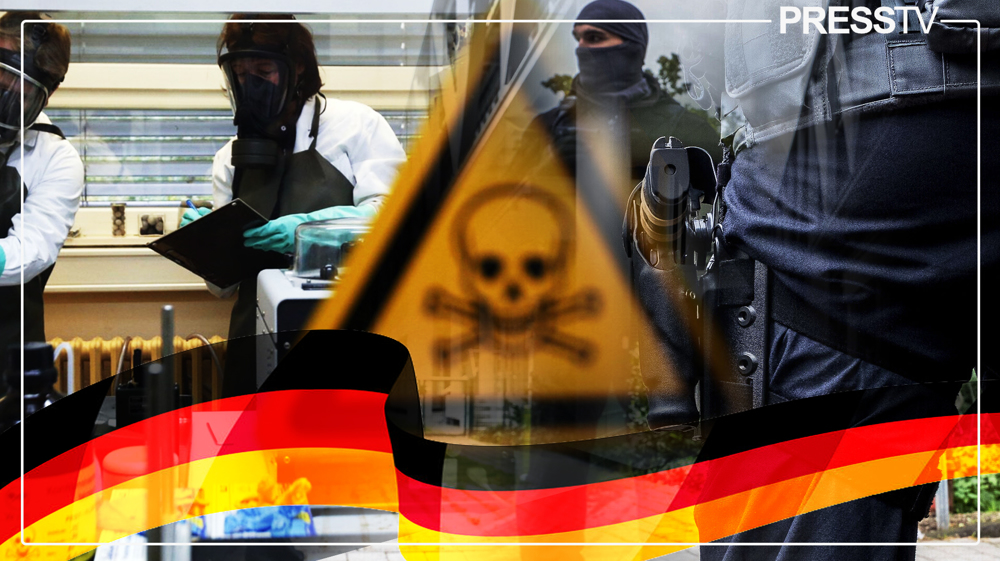
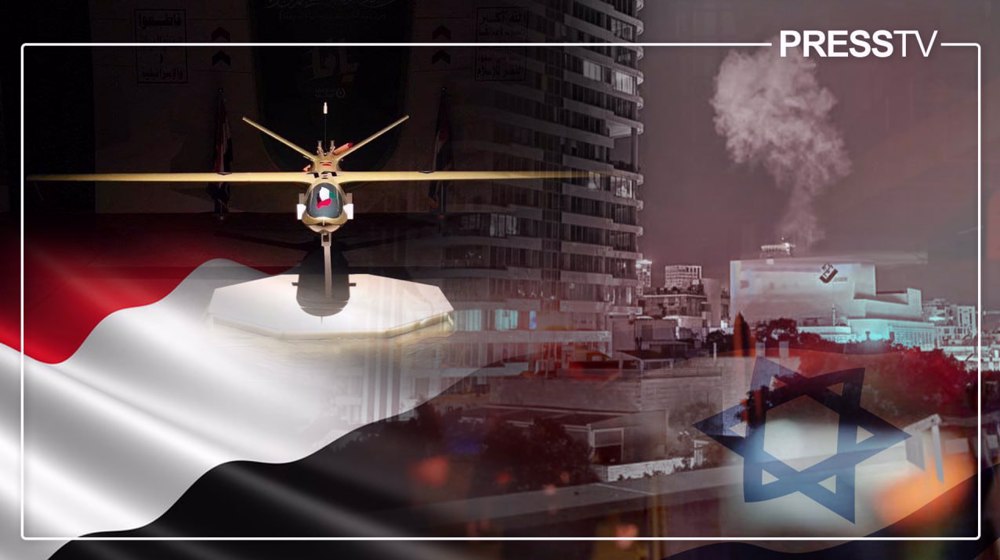
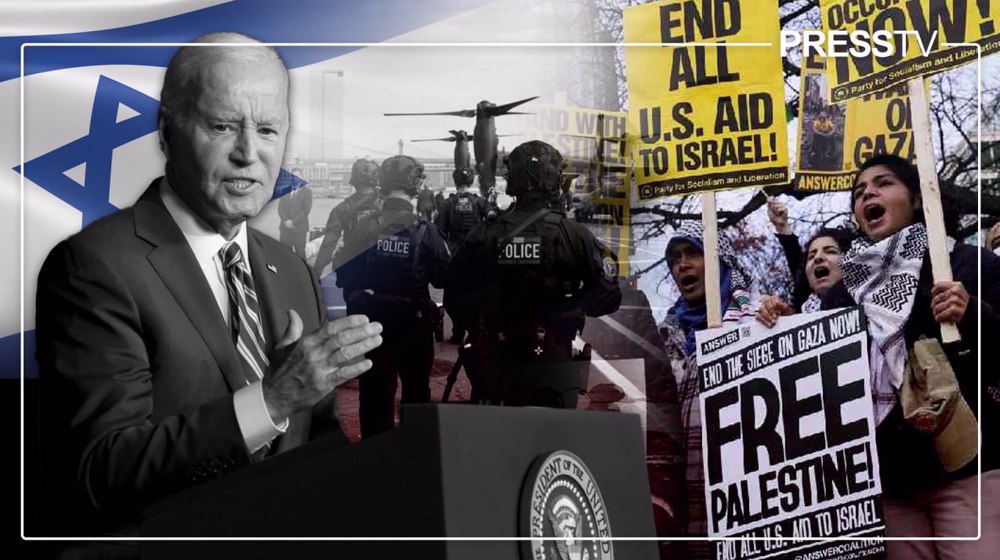
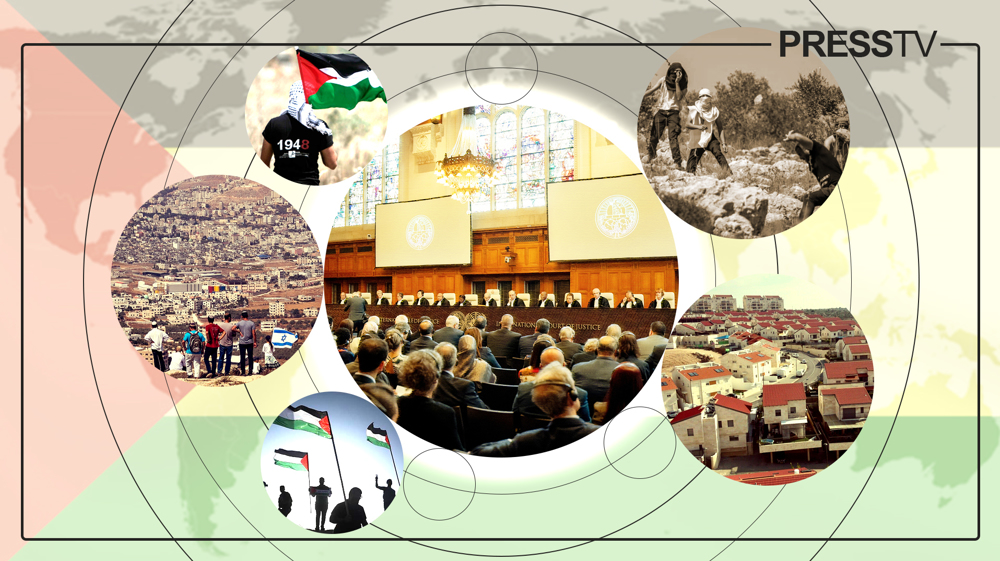



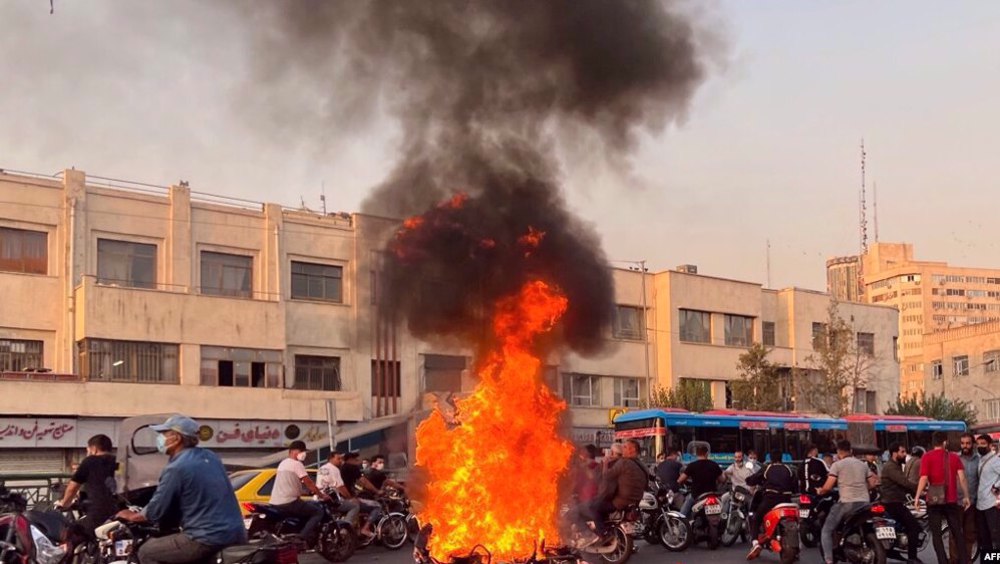
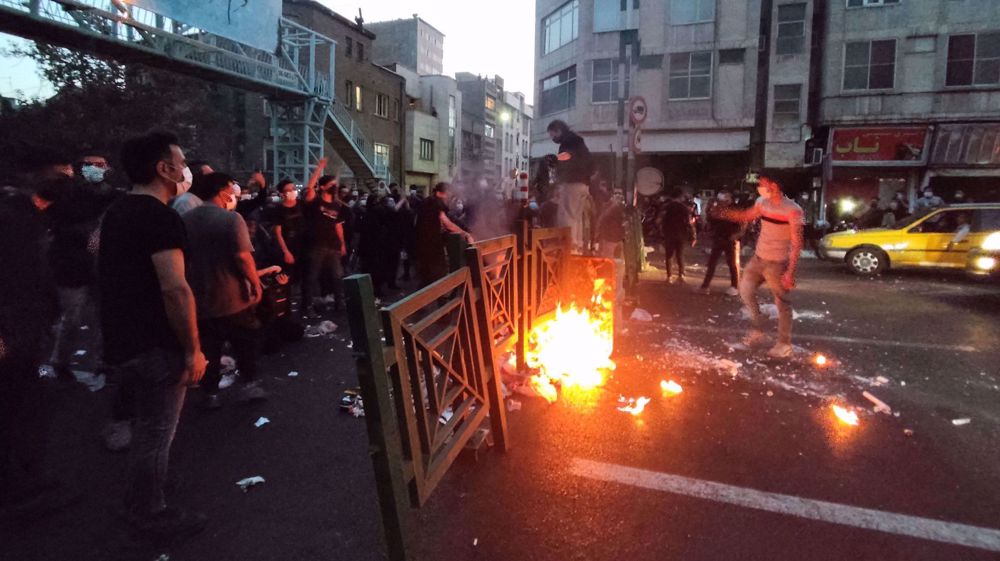
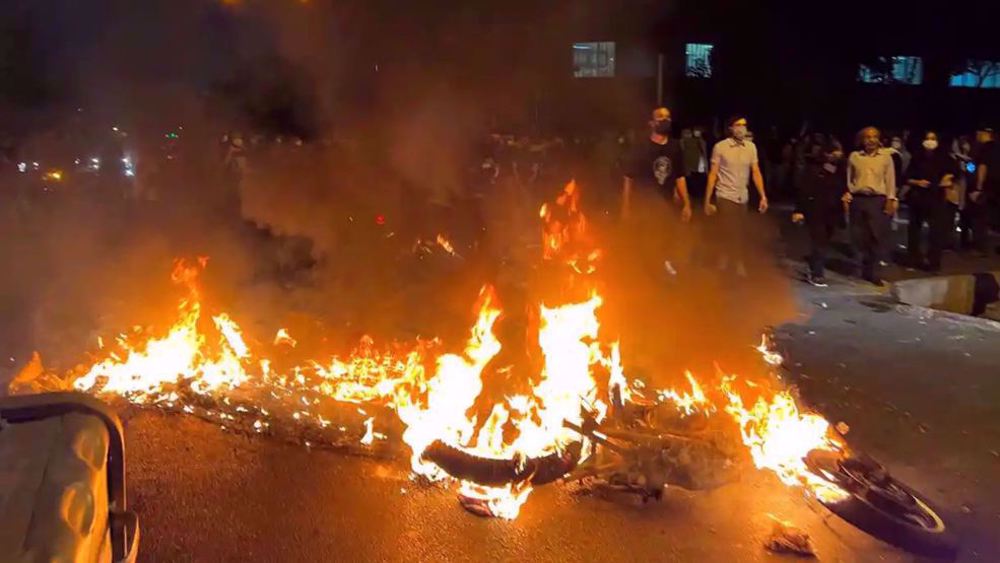
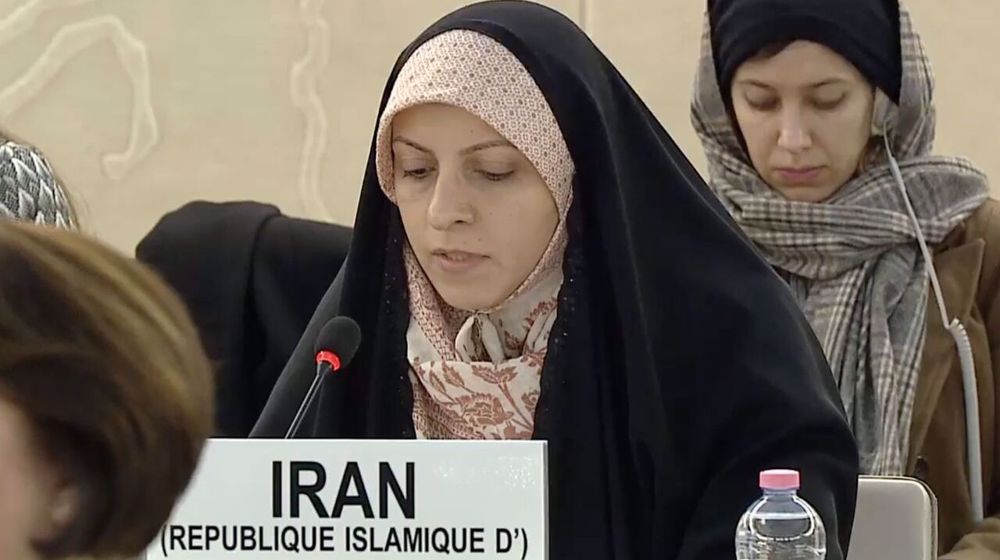
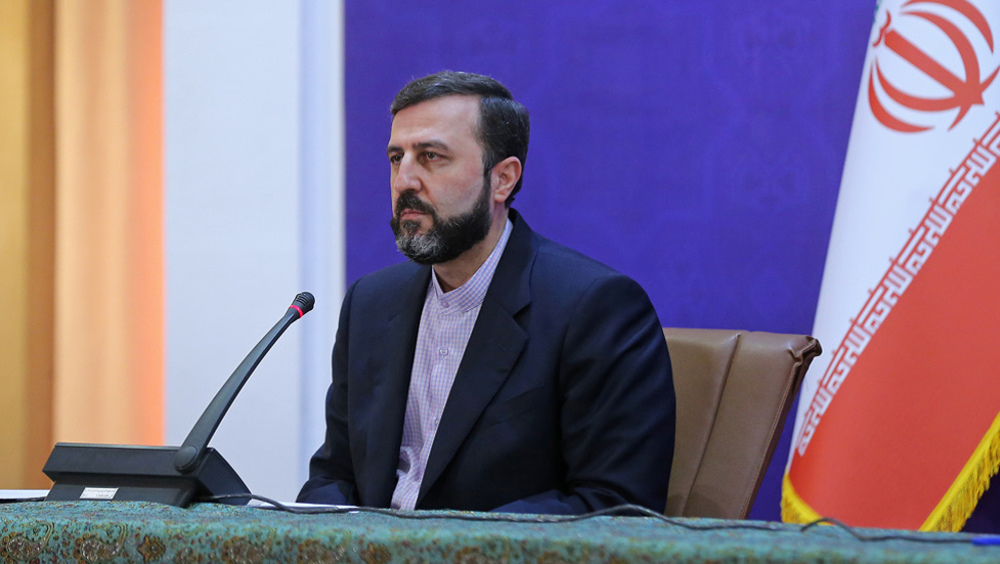

 This makes it easy to access the Press TV website
This makes it easy to access the Press TV website